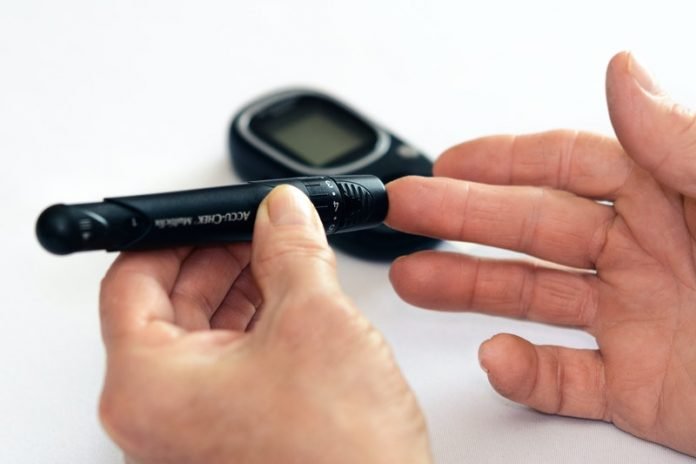
Keeping blood insulin levels within strict, healthy parameters is a daily goal for people with diabetes.
But in a new study from Osaka University, researchers found that regulating blood insulin levels may even help lower the risk of getting COVID-19.
They found that a protein called GRP78 helps the virus that causes COVID-19 bind to and enter cells. GRP78 is a protein that is found in adipose tissue (i.e., fat).
Older, obese, and diabetic people are all more vulnerable to COVID-19 and the reasons for this are still not completely clear.
In the study, the team looked at GRP78, which has recently been suggested to be involved in the interaction of SARS-CoV-2 with human cells.
The major method by which SARS-CoV-2 enters human cells is by a spike protein on the viral surface binding to a human cell-surface protein called angiotensin-converting enzyme 2 (ACE2).
The team discovered that the spike protein can also directly bind to GRP78, and that the presence of GRP78 increases the binding with ACE2.
To get an idea of GRP78’s involvement in COVID-19 vulnerability they investigated how much GRP78 protein is present in tissues from older, obese, and diabetic patients.
Aging, obesity, and diabetes are known to be associated with increased blood insulin levels. Therefore, the group wondered whether insulin was involved in GRP78 expression.
They found that exposing cells to insulin did induce the expression of GRP78. Importantly, they discovered that treatment using widely prescribed anti-diabetic drugs that reduce insulin levels successfully reduces the expression level of GRP78.
They went a step further and showed that exercise and calorie restriction in a mouse-model also worked to reduce GRP78 levels in adipose tissue.
These findings suggest that a high blood insulin level is an important risk factor that can predispose older, obese, and diabetic individuals to COIVD-19 infection.
As such, controlling blood insulin with pharmacological interventions or with environmental interventions, such as exercise, could help lower these patients’ risk.
Given the global impact of the SARS-CoV-2 pandemic, the results from this study provide important insights into how to lower the risk of infection in these vulnerable patients.
If you care about COVID, please read studies about antibodies from COVID-19 vaccination almost 3 times higher than from infection and findings of this ‘warm vaccine’ may effectively fight all COVID-19 variants.
For more information about COVID and your health, please see recent studies about aspirin and other common anti-inflammatory drugs could help prevent COVID-19 deaths and results showing that COVID-19 vaccine protection is lower and slower in people with this health problem.
The study is published in Diabetes. One author of the study is Jihoon Shin.
Copyright © 2021 Knowridge Science Report. All rights reserved.



